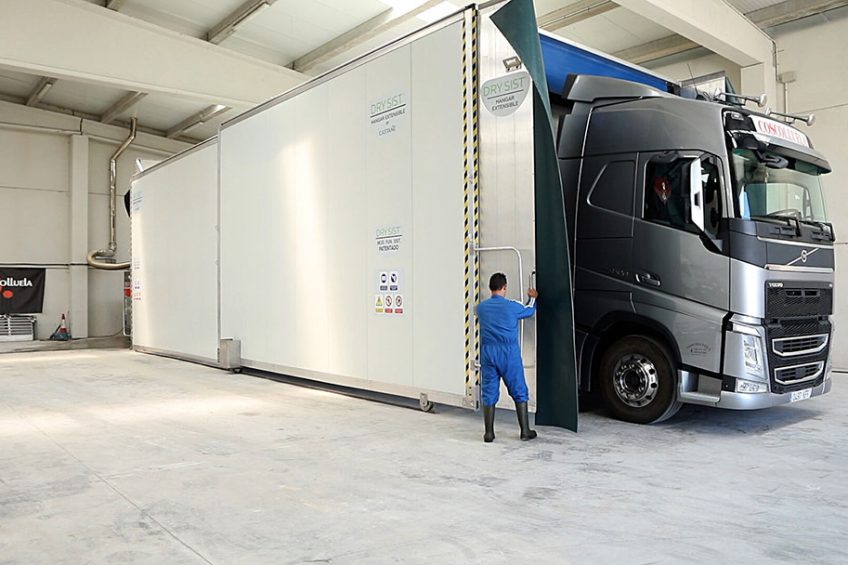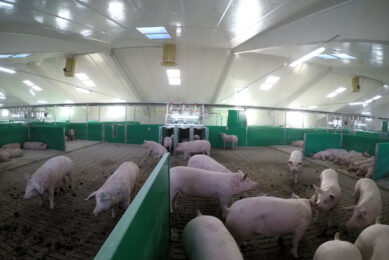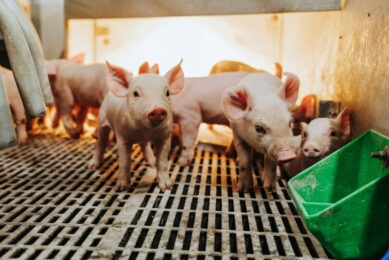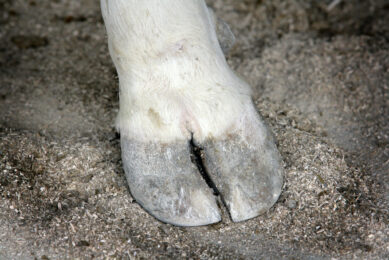A hot innovation disinfecting pig trucks

The EU PiG Innovation Group aims to discover and share best practices and innovations in swine production. Some innovations stood out. In this edition: the DrySist system effectively disinfects trucks to improve biosecurity on swine farms.
The ambassador
Joan Sanmartín, owner of OPP Group, which is a Spanish group of experts dedicated to offering an integral swine production advisory service, as well as manufacturing company Techtrans and the pig farming group Piensos Costa, with over 750 associated farms.
The innovation
3,5 years in the making, the innovative system of thermal decontamination was named DrySist, a combination of the English word ‘dry’ and the Spanish word ‘sistema’ (‘system’). The system is connected to a truck and pumps hot air into the container until it reaches 75°C, then keeps it there for 15 minutes. It only heats up the part of the truck that has contact with the animals while keeping the tyres, lower part of the truck and other plastics safe from the heat. According to OPP Group, DrySist is 100% effective and chemical-free. The whole process, which takes 30 minutes, is certified electronically and the certificate can be received remotely in real time.
The idea
The animal husbandry industry demands innovation in this area of biosecurity. With the proximity of African Swine Fever and the need to eliminate or reduce use of antibiotics, improving truck decontamination plays a key role.
Focusing on biosecurity exclusively within a farm is a mistake, because the movement of trucks to transport pigs is the most significant way that diseases enter a farm and is therefore the primary factor of disease transmission between farms. By increasing biosecurity, the entry of diseases (digestive and respiratory) on farms is reduced. DrySist therefore aims to improve biosecurity to prevent entry of African Swine Fever and other pathogens, including Porcine Reproductive and Respiratory Syndrome, Salmonella, E. coli and swine dysentery.
The journey
According to the team, the most memorable part of the journey in creating this system was evaluating many “disinfected trucks” and understanding the enormous variation found in the field, from good to very, very bad.
Advantages
The biggest advantages of DrySist are that it is reliable, and the results are consistent. Other advantages:
- The system is truck-friendly since it only heats the container part of the truck, and the rubber tyres, hoses, brakes, plastics, etc., are not exposed to high temperatures.
- The decontamination process is very short and cost-effective.
- The heating process has been designed to last about as long as the washing period, so there are no bottlenecks in the process.
- Compared to chemical disinfection, DrySist dramatically reduces the downtime of the truck.
- DrySist does not allow development of disinfectant-resistant bugs.
- DrySist stops large amounts of chemical disinfectants going into the sewers or water treatment plant. This allows much faster biodegradation of the washing residues and reduces the environmental impact of the process.
- A huge advantage is the reduction in veterinary costs, as DrySist reduces pathogen and disease transmission between swine farms.
The costs
The cost of the system, including the machine and software, is about € 125,000. Electricity consumed amounts to 8–10kW/h; diesel consumed to 30 litre/h and propane consumed to 37kg/h.
What is next?
It is planned to expand DrySist to other industries.

EU PiG Innovation Group
The EU PiG Innovation Group (EU PiG) aims to help pig producers find tried-and-tested best practice from fellow producers across Europe. Through an annual EU-wide contest, called the EU PiG Grand Prix, more than 300 producers share their innovative ideas and best practices, which are developed in response to industry-wide challenges, to compete to become one of eight EU PiG ambassadors. Each year, two topics are chosen for each of the project’s four key themes, namely health management, meat quality, animal welfare and precision production. In various editions of Pig Progress, a best practice will be discussed.











